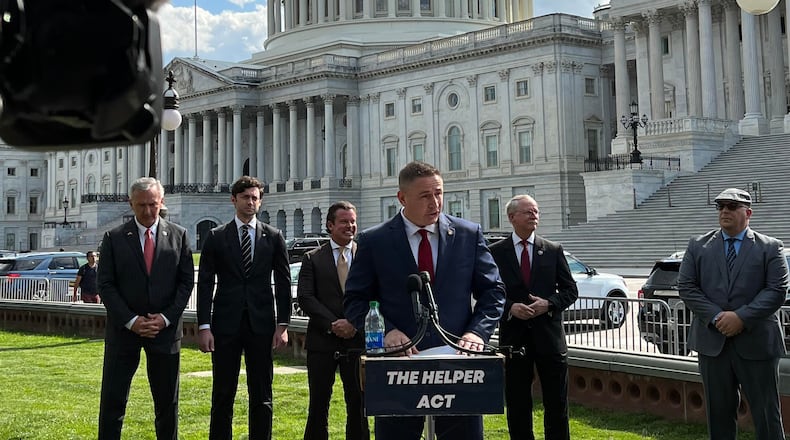First responders are not the only ones suffering from staffing shortages. A recent Rand Corporation survey found that 90% of school districts nationwide have had to alter operations to adapt to teacher vacancies. Across the country, states are getting creative with how they respond to these shortages, from hiring veterans and college students to cutting back to four-day school weeks. This shortage is due in large part to poor salaries and benefits. Here in Ohio, a former teacher shared with Good Morning America his choice to quit teaching because his salary was too low to start a family. He went to work for Walmart instead, and saw his salary increase by $12,000.
In communities across Ohio, first responders can no longer afford to live in many of the places where they work, and some are choosing to walk away from the profession altogether, forced to make a difficult decision between pursuing a dream and supporting a family. To provide context for how essential these first responders are, consider that in Dayton, there were over 130,000 calls for service in the past year, nearly equal to the population of the city itself. Staffing shortages could cost lives.
We’re having serious conversations about this issue and what it means for our constituents every day. Many of these jobs are already dangerous, and at a time when maintaining necessary staffing levels is difficult across almost every line of work imaginable, the inability of first responders and teachers to purchase homes in our communities is just another factor working against our efforts to serve the public.
Action from lawmakers is past due and the window to enact meaningful change is closing quickly. We stand with our fellow mayors from across the country in calling for the swift passage of the Homes for Every Local Protector, Educator, and Responder (HELPER) Act, a bill currently moving through the United States House and Senate. This common-sense, bipartisan legislation is supported currently by more than 75 lawmakers from both parties. It would eliminate down payment requirements and offer 100% financing for one-time home purchases for frontline heroes, including firefighters, police officers, paramedics, and preK–12 teachers. Passing the HELPER Act would mean that if one of these heroes is interested in buying a moderately priced home, they will receive a loan to finance the entire purchase price with no upfront payment.
The HELPER Act mirrors what is already offered to our military servicemembers and veterans in the GI Bill, which has proven to be successful for many decades. We know the model works. The legislation is also low risk for the federal government, as first responders are typically employed in stable positions for many years, minimizing the risk of default on a loan.
The HELPER Act awaits review in the House Financial Services and the Senate Banking Committees. We are urging the committee members in both chambers to consider the millions of first responders and educators they represent who are getting boxed out of homeownership and bring this bill up for a vote. It is not often that lawmakers have an opportunity to work together on a generational investment for the safety and security of our communities while also ensuring a diverse talent pipeline for future first responders.
We cannot risk the ramifications of a mass exodus among our public servants sparked by an easily preventable housing crisis. The eyes of our neighborhood heroes now fall on those who represent us in Washington. These first responders have risen to historic challenges and given us their best every time. Now it’s time for those we elected to do the same.
Mayor Jeffrey Mims, Dayton
Mayor Mary McDonald, Trotwood
Mayor Jeffrey Gore, Huber Heights
Mayor Steve Patterson, Athens
Mayor Frank Whitfield, Elyria
Mayor Jack Bradley, Lorain
Mayor Joe Begeny, Reynoldsburg
Credit: Contributed
Credit: Contributed
Credit: Ken Blaze
Credit: Ken Blaze







